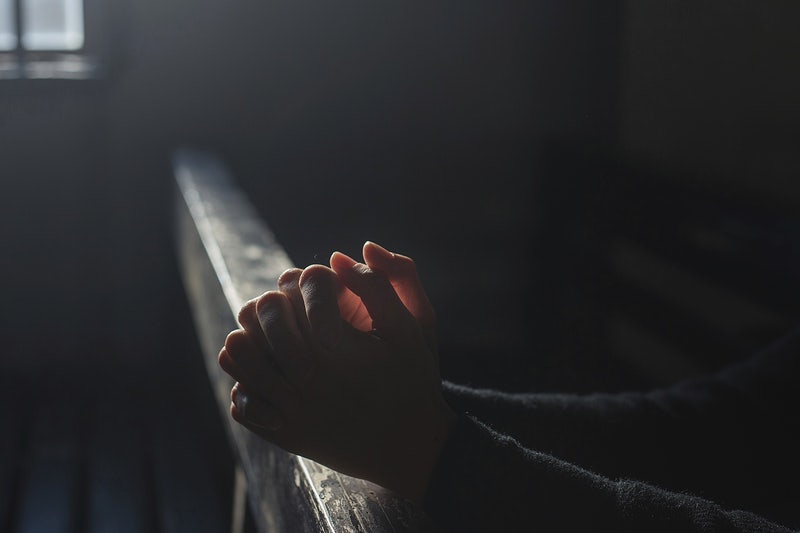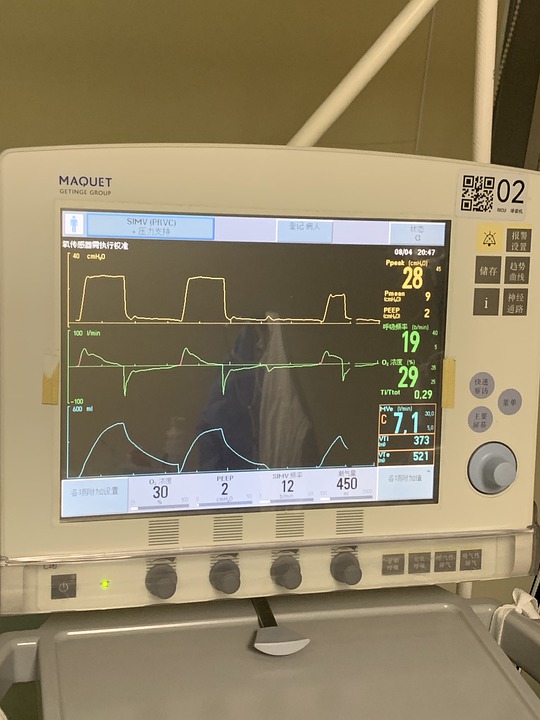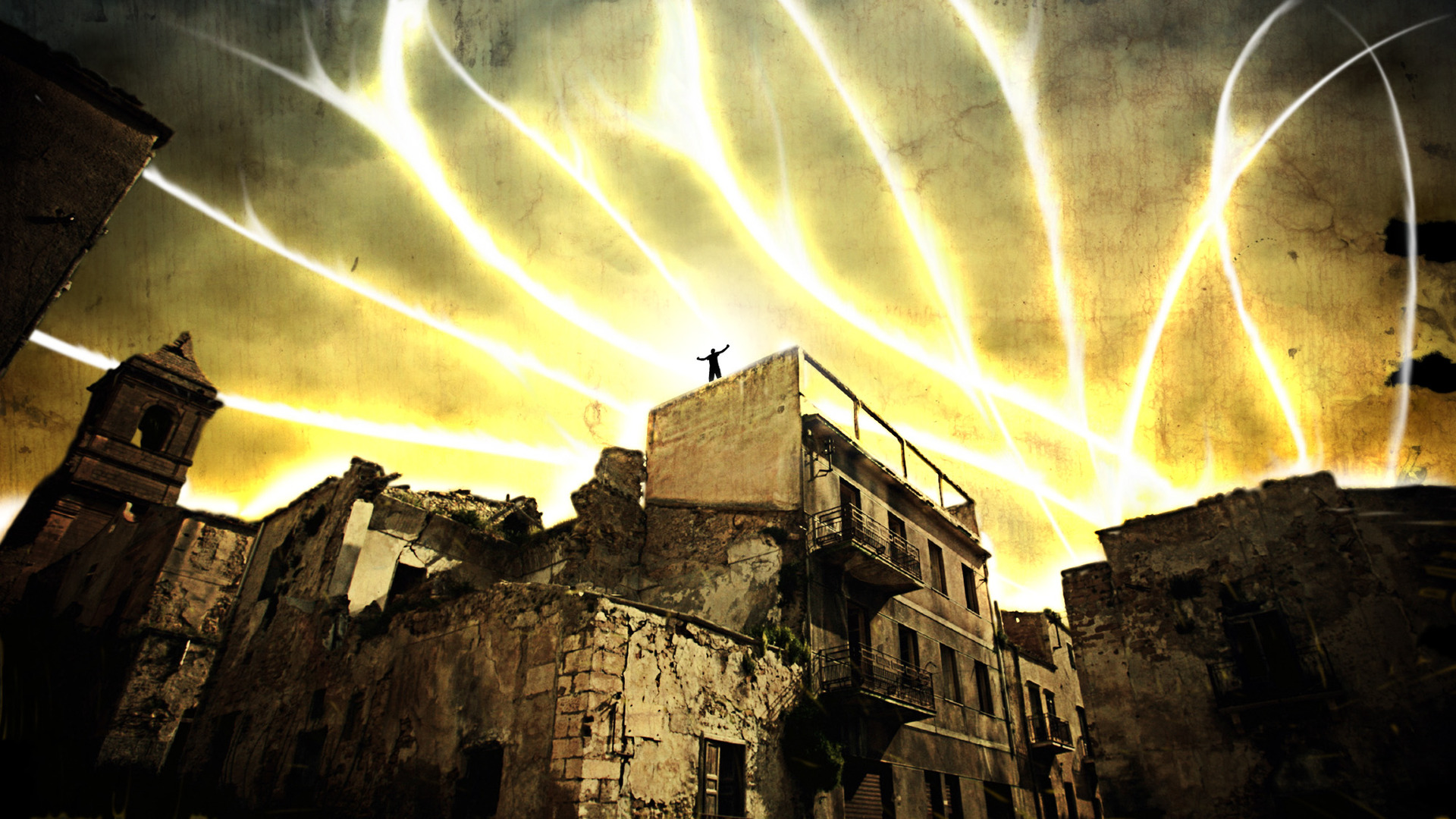Blog
Meditations
Thoughts and Prayers
Wednesday, July 06, 2022
People in our society say lots of dumb things. Surely among the most foolish, though, are the denials of the power of prayer. This usually comes up after mass shootings, when conservatives send “thoughts and prayers” on behalf of the victims’ families. In reply, progressives sneer that thoughts and prayers aren't enough. What we really need is action on gun control!
There are a couple of problems here. The first is that action from the government is in no way comparable to prayer. God is all-wise and all-powerful. The government, well. . . Those who put their trust in princes would be well served to study some history and learn how trusting princes works out.
Second, I suspect that people who show contempt for prayer typically have never prayed and have never been prayed for. Since I was diagnosed with ALS last July, I have been the beneficiary of countless thousands of prayers, so I suppose that I am in a better position than most to testify to their effectiveness.
Simply put, my experience is this. Without those prayers, I cannot even imagine how bad my life would be. No, they haven't cured my disease, but I didn't really expect them to (though I certainly would have been thankful if they had!). It is appointed to man once to die, and the promise of God is not the removal of affliction but comfort through affliction.
The latter I have indeed experienced, in spades. In fact, I usually find myself in the strange position of being much more at peace with my decline and death than the people I talk to are. This should not be! After all, I'm the one whose legs are so bad that I can barely walk and whose hands are so bad that I can't type or button a shirt. They're healthy, but they're broken up, and I'm not.
This is not the result of my strength of will or my faith. I learned the limits of my willpower last year when I was suicidally depressed. Concerning faith, I feel that mine is not the equal of the faith of many who are praying for me.
Nor, I think, does the answer even lie in the antidepressants that I'm taking. I've been saying for a while now that my experience with them has been amazing, far better than that of anyone else I know. I am baffled.
It occurs to me, though, that in my perplexity I have been overlooking a confounding variable. About the same time that I started taking antidepressants, I also went public about my illness and made the prayer lists of churches all over the world, and the prayers have been doing the real work. Antidepressants are a blessing, but prayer is a much greater blessing.
Because of those prayers, I have been able to continue my work. I have been able to encourage and inspire others, more powerfully than I have ever done before. Even as my body continually reminds me of the progression of my disease, I am filled with joy and hope.
Consequently, whenever somebody tells me that they have been praying for me, I thank them fervently and encourage them fervently to continue. In fact, I think that sometimes people are taken aback by the warmth of my response. I'm dead serious, though! I am in constant need of all the prayers that anyone is willing to offer.
Pray, then, and do not lose heart. Pray for me, and pray for all the other godly goals that are on your heart. Pray, and keep praying. You will find a blessing that all those who mock thoughts and prayers will never experience.
Worth Dying For
Thursday, June 02, 2022
Among my many friends in Texas is a brother named Jerry Strode. We've known and worshiped with each other for years, but recently, a shared experience has drawn us much closer. Both of us have had to accept the fact of our own deaths.
Jerry's realization came a few years back when he developed a horrendous case of pulmonary fibrosis. In the space of about a month, he went from normal lung function to being unable to breathe on his own. He spent 22 weeks on oxygen, and part of that time, he was on a vent. His life was only saved by a last-minute double lung transplant.
To this day, Jerry’s health remains fragile. He is on immunosuppressive drugs so that his body does not reject his new lungs, but he knows that someday, that rejection will happen. When it does, it will be the end for him.
The first Wednesday of my Texas odyssey, Jerry and I spent a couple of very meaningful hours talking with one another. Both of us see the world very differently now, and it was fascinating to explore together the lessons that we have learned.
The next day, I tested positive for COVID. Just about my first thought was, “Oh, no! I've killed Jerry!” After all, COVID does a number on immunocompromised people. When I was laid up, I prayed more about his health than about anything else.
Thankfully, he never developed symptoms, and when I was able to come back to church, he was one of the first people I saw. I greeted him and told him how glad I was that I hadn't killed him.
In response, he waved his hand dismissively. “Don't worry about it,” he said. “I'm going to die anyway, and I can't think of a better reason to die than because I spent time with another Christian.” He told me next that in his estimation, a life of isolation wasn't worth living.
The era of COVID has been an era of fear. From the beginning, various authorities have done their best to make us afraid so that we would follow the precautions that they thought were appropriate: masking, social distancing, vaccinating, isolating, and so forth. As a result, many have spent the past couple of years terrified of getting COVID. They think that getting COVID and dying is the worst fate, unimaginably bad, and they will do anything to avoid it.
Jerry knows death better than just about anybody who’s still alive. He knows just how bad it is, and he knows that it’s not the worst. Loneliness is worse. Cutting yourself off from the people you love is worse. Above all, not having a rock-solid relationship with Jesus is worse. In fact, says Jerry, that’s the real worst.
None of the above means that we should not take precautions. Jerry had a mask on when I saw him that Sunday. Precautions aren’t the problem. The problem is when we allow fear, whether of COVID or anything else, to separate us from the things that really are worth dying for.
Revisiting "Servant Song"
Thursday, May 26, 2022
They say you can never step in the same river twice. However, one of the quirks of being a hymnist is that sometimes you get to watch your younger self stepping in the river repeatedly. I rarely return to my older work; it tends to make me want to red-pen it savagely. Occasionally, though, I am present in an assembly when a song leader leads one of my hymns, often one that is more than 20 years old.
I experienced this last March when I was visiting with the Kleinwood church. Whether because of my presence or because of happenstance, one of the hymns selected that Sunday was “Servant Song”.
The hymn has particular spiritual resonance for me because it marks the low point of my life as a Christian. While thinking I was being righteous, I had allowed myself to be deceived into practicing evil. I had realized my error at the cost of tremendous suffering, and in January 2000, I was trying to pick up the pieces. I knew I needed to rebuild my spiritual life from the ground up.
Into this emotional turmoil, all unaware, came Richard Morrison. He emailed me, asking me if I wanted to write additional verses to a Jimmy Owens hymn entitled “Servant Song”, which he had recently arranged.
Immediately, I told him yes. I thought (and still think) that the tune was beautiful and the core thought of the hymn was compelling. I knew that a servant was exactly what I wasn't, but it was exactly what I wanted to be. When I was still working with the church in Joliet, the song leaders there would use “Servant Song” as an invitation hymn, and that's honestly about right.
I am a perfectionist and an utterly unrepentant one. There are hymns that I've worked on for more than a decade. However, I wrote those two verses in about 15 minutes, and the version that is sung today is identical to the original.
As I was reflecting on these things last March, a new thought occurred to me. “Servant Song” is a prayer, an appeal addressed directly to the Father. When I wrote those words, I meant them so strongly that it hurt. When churches began to sing them, while using the text to worship, they also unwittingly were repeating my cry from the depths. That same prayer has been amplified before the throne of God for more than 20 years.
With the benefit of those two extra decades, I now can see how God has answered that prayer in my life. The results have been imperfect because they involved me. Selfishness and pride continue to be stumbling blocks to the working out of God's will in my life, and I know they always will be.
Nonetheless, in large measure my prayer has been answered. Indeed, it has directed the course of my life. In 2000, I had no intention of becoming a preacher, but I became one anyway--after kicking against the goads for a good long while. With each passing year, I learned more and more that the work of the evangelist is the work of servanthood. I asked to be made a servant, and I was made one.
I also have been given a gift that few receive: the gift of being able to return to the beginning from the end. From the perspective of the end of my life, I can trace the unwavering course of God's answer despite the twists and turns I introduced. For that, at the last, I am thankful.
Parking-Lot Modesty
Thursday, May 19, 2022.jpg)
1 Timothy 2:9-10 is the most prominent modesty text in the Bible. On its face, it is concerned with displays of wealth in clothing. Back in the day, Greco-Roman women used fancy hairstyles, gold, and pearls to show off money and status. Paul told them that they ought to be showing off Christ instead.
Today, the cultural context has changed. Some people still wear lots of jewelry, but to us, it’s a lower-class affectation rather than an upper-class one. Tony the used-car salesman with his rings and his bling does not impress us as having Made It.
For that matter, the messaging of haute couture is lost on most of us. I guess wearing Manolo Blahniks matters to some, but I couldn’t tell a pair of high-dollar shoes from a hole in the ground. I shop at Walmart, and they don’t sell those there.
However, you know what possession does immediately communicate wealth and status to every American? A high-dollar car. I may not know beans about designer fashion, but I sure know what the luxury auto makers are! Thanks to the commercials they run during college-football games, I also know that if I bought one, the car payment would be about the same as my mortgage payment.
Admittedly, cars aren’t clothing, so they’re outside the explicit terms of 1 Timothy 2. Of course, the revealing clothing that is the primary subject of our modesty discussions today isn’t about money, so it’s outside the explicit terms of the text too. I believe it’s valid to make the latter application, but isn’t the former application at least equally valid? It does warn the same kinds of people that Paul originally warned.
Nonetheless, we hear a lot more in the brotherhood about cleavage than about cars. Reasons for this may vary. However, a cynical outsider certainly would observe that cleavage sermons are aimed at young women with little stature in the church or influence over the preacher. By contrast, car sermons would target wealthier brethren who tend to have stature and influence both.
It's probably about time to talk car ownership, then. We ought to ask ourselves not only whether we are dressing modestly but also whether we are driving modestly. Note that modesty analyses are not concerned with motive. Paul does not ask why a woman has an elaborate hairstyle, gold, and pearls. He merely tells her she needs to put them aside. Nor, for that matter, do we give a pass to the young thing in the flirty top because she has acted in innocence. Let us not shy away from applying the same standard to ourselves!
I’m not going provide a list of immodest makes, models, or—God forbid!—trimlines. That’s not my place, any more than it’s my place to tell the sisters what clothing goes too far.
Instead, I want everybody to ask the same kinds of questions. Does my car allow others to see Jesus in me, or are they going to get stuck looking at the car? If somebody comes rattling up to the church building in a Buick from the Carter administration, and they see my car in the parking lot, are they going to assume that my church is not for people like them? Most simply, did I drop a lot of money on my car because I wanted to impress people?
These are unfamiliar questions. They may be painful ones. However, in a world that offers us every opportunity for self-idolatry, they are questions we must ask.
The Judgment of Babylon
Wednesday, May 18, 2022
It seems like the farther we get into the book of Revelation, the more contentious it gets. Our reading for this week concerns chapters 16 through 18, and the main character in this section is the wicked city Babylon, personified as a prostitute. To say that the identity of Babylon is under dispute is to put it lightly. Whole oceans of ink have been spilled in defending one of two main viewpoints, that Babylon is either the city of Jerusalem or the city of Rome.
I happen to identify Babylon with Rome, but there is a more fundamental sense in which this debate misses the point. As always, I think the best way to figure out Revelation is not to look forward and try to make it match up with events after the time of its writing. Instead, we are much better off looking back and studying the language of the Old Testament that it is borrowing. Let's use that approach this evening to figure out what we need to know about the judgment of Babylon.
Our text tonight will be Revelation chapter 18, which is particularly suitable for our purposes because it almost entirely comprises references from the Old Testament. As we examine these source texts, they will help us to figure out what the Holy Spirit wants us to understand. Not surprisingly, they are about the judgment of cities from the time of the kingdom of Judah.
The first such text is about the judgment of the literal city of Babylon. Let's read from Revelation 18:7-8. This is taken from Isaiah 47:5-9. The parallels here are clear. Just like the Babylon of Isaiah described herself has a queen who never would know mourning, the Babylon of Revelation says the same thing. John obviously wants us to connect these two events.
Second, John uses language from the judgment of Edom. Look at Revelation 18:2. Our source text this time is Isaiah 34:6, 11-14. Isaiah goes into more detail, but we see that the same creatures are present in both texts: unclean birds, unclean beasts, and even demons. All of these will inhabit the ruins of a city that opposed God. John doesn't only want us thinking Babylon. He wants us thinking Edom too.
He also wants us thinking about the judgment of Tyre. Consider Revelation 18:11-19. This time, we need to go to Ezekiel 27. In fact, John uses so much of this text that we don't have time to read it all. Let's take a sample, though, from verses 12 and 13. This is the start of a catalogue of trade goods like the one in Revelation 18. Notice particularly the description of the slave trade as a trade in human souls or lives. Also, in Ezekiel 27: 28-32, we see sailors and merchants lamenting the fall of the city. They're doing the same thing in Revelation.
Finally, John uses language from the judgment of Jerusalem. Let's go here to Revelation 18:21-24. This time, John is working with Jeremiah 25:1, 8-10. It's easy to see that both texts contain the light of a lamp, the sound of a millstone, and the voices of a bridegroom and bride. These are the products of ordinary human activity that will cease after God's judgment.
When we put all of this together, we see how shortsighted it is to behave as though God’s judgment is exclusive to any one wicked city or nation. In the time of Isaiah, God promised to judge the wickedness of the whole world, and He did. As I said, I happen to think that this week's reading is about Rome. However, the language of Revelation 18 applies just as well to first-century Jerusalem. We know that it was a wicked city that God judged, and this is the timeless language of God’s judgment.
Nor should we think that this judgment language has had no application since the fall of Rome. Nowhere in Scripture do we see God resigning His position as the great King of the nations, and He has not ceased to control their rise and fall. Thus, it is reasonable to look at Revelation 18 and see it as predicting the downfall of Germany and Japan in 1945 because they too were wicked nations that paid the price for their wickedness.
This is both reassuring and alarming. It reassures us because we can be certain that God continues to rule the fate of nations now. The wicked may prosper for a time, but ultimately, they will fall before His wrath.
However, we must remember that one of the cities that was judged was Jerusalem. God's judgment is not only for other places. If our nation is wicked, it will fall upon our heads too. This takes us to our final text from Revelation 18, verse 4. It comes from Isaiah 52:11. Interestingly, this text also is cited by Paul in 2 Corinthians 6:14-18.
The message for us is plain. Because God is sure to judge Babylon, we must make sure that we don't belong to Babylon. This was true for Christians who lived in Jerusalem or Rome, and it is true for Christians who live in our wicked nation. This doesn't mean that we must emigrate. Instead, it means that we must hold ourselves apart and not participate in the wicked deeds that are inviting God's judgment. If we will not “come out from among them and be separate”, we will not escape their fate.


